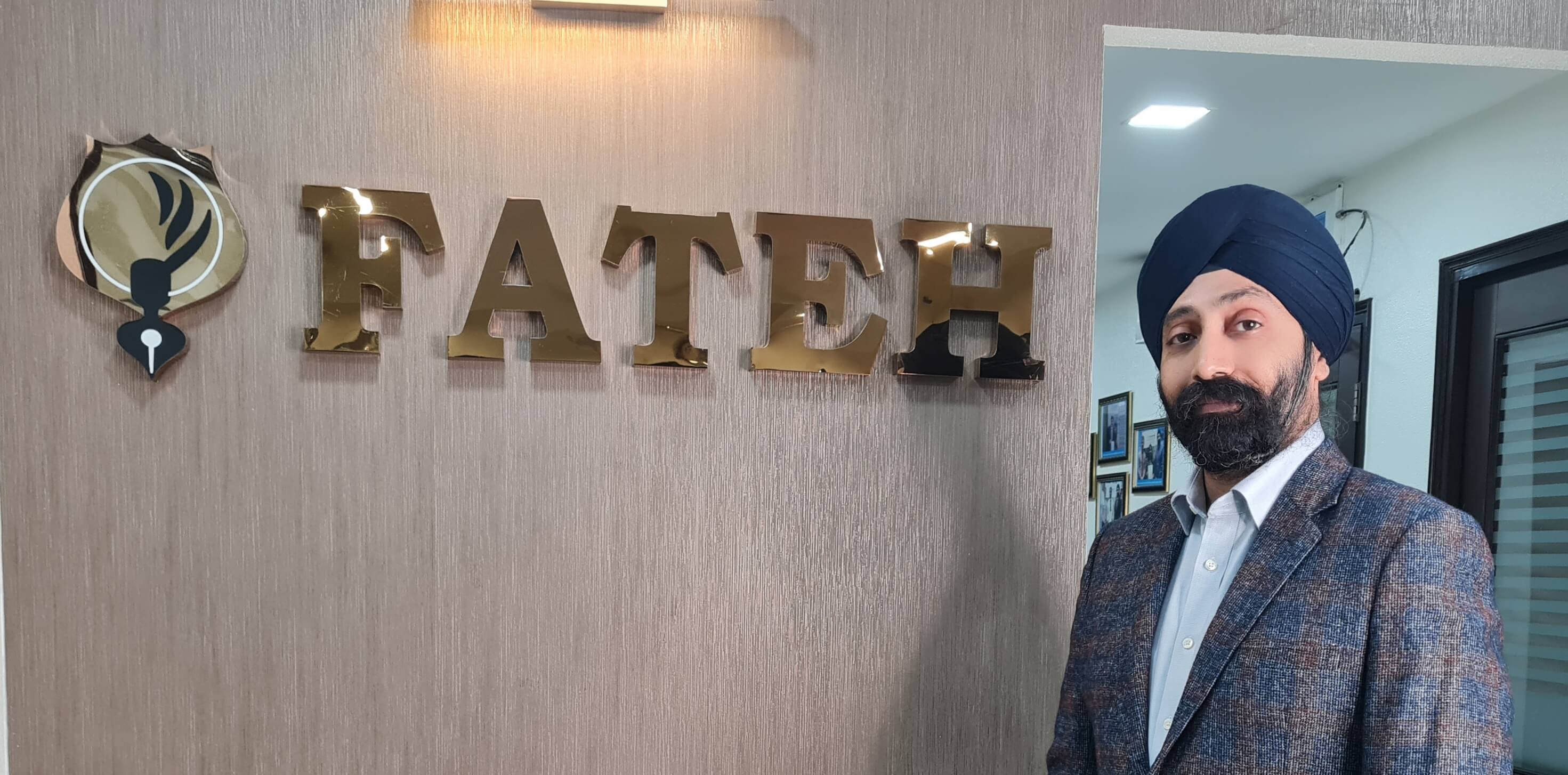
Indian students are among the largest source of international students for leading study abroad destinations, including the UK, US and Canada. Student counselling can serve as a useful way for helping students through the melange of ideas and information available online, which is where Fateh Education comes in.
Fateh Education provides students with professional advice on anything related to studying in the UK and Ireland. Established in 2004, the education consultant provides student counselling that covers various aspects of the student journey — from a students’ university application to their post-landing formalities and IELTS training.
All of this is done with the aim of helping Indian students enjoy a seamless journey to study in the UK.
At the helm of Fateh Education — a certified Gold Partner of Cambridge University Press — is a CEO with over two decades of experience in helping Indian students pursue an education abroad.
We speak to Suneet Singh Kochar about his journey into the industry and what are some of the common things Indian students need guidance on:

Fateh Education CEO Suneet Singh Kochar prides himself on providing students with unbiased information on studying in the UK and Ireland through his international higher education consultancy. Source: Suneet Singh Kochar
How does Fateh Education help Indian students who want to study in the UK and Ireland?
Before Fateh Education, we helped nurses get recruited to Western countries and part of that was to provide ICS training. Then, we realised that we needed a change in direction.
The idea of going abroad was already in play since we helped nurses (who usually came from tougher backgrounds) get recruited overseas. So, when we started helping Indian students go abroad, it made more sense.
Although the average student needed a little more grooming with English, since we generated results for nurse recruitment, we translated this superlative success with Indian students.
Where did you get the inspiration to start Fateh Education and to get involved in student counselling?
I was part of Jamboree (specialised training for study-abroad entrance exams) in India and I also studied in Calcutta at a premier institution. At that point, when I wanted to do my MBA, I considered going abroad.
I then realised I wasn’t able to get unbiased advice. That made me want to go back to an area where I felt there was a lack of information as I value education. The reason why we focus on the UK and Ireland is that it’s an export market.

Palac Chhabra is studying at the University College Dublin, thanks to the help obtained from Fateh Education. Source: Suneet Singh Kochar
What do Indian students who want to go to the UK and Ireland need more guidance on?
Because most platforms out there have biased information, the most important thing is to be able to educate Indian students on what these platforms are all about. We help them figure out the next step with big choices.
Back in 2007, the internet wasn’t advanced as it is now. Information was primitive so our advantage then was fact arbitration and making money through that.
We had access to institutions and professionals which students didn’t have. Nowadays, a professor’s contact is just a click away but this has introduced a new challenge: information overload.
Fateh helps make sense of the information and students in the right direction. The Indian students we work with are typically the first ones in their extended family who are looking to study abroad so the biggest thing for them is the financial risk.
The most researched thing is university rankings, then employment rates and then location. Students have a better chance at understanding all these parameters when we help them declutter the information in between.
So, you’re constantly having to adjust and update information?
Oh, absolutely. There’s so much need for continuous training and even more so with the pandemic.
We need to always get behind the student to understand what he or she is seeking. Our needs have changed from 15 years ago to today. They need to know what to search, where to search and how to search.
Is the student counselling provided tailored to each individual?
Absolutely, I don’t think we have a one-size-fits-all. I think we’ve deliberately steered away from providing a team where they can just pull the file and get the university they want. We encourage Indian students to do a bit more research before they make a final decision.
If you could turn back time, is there anything you’d change or advise yourself?
I don’t have too many regrets as I’m one of those people who try to live in the present and plan for the future. However, I would try and include how to understand payability in our counselling because the return of investment is very important.
For Indian students, look at universities as a place where they’ll get their first shot in being work-ready. There’s a big gap between students finding a job and students training to enter the workforce. Students need to be advised beforehand so they know how to match expectations and know what to do.
Hitting the ground running is not always ideal as there will be a struggle to understand how it all works. So, we do intensive career counselling sessions before students leave and guide them on how the West operates differently from the East. So, that’s the only change I would make.
What advice do you think you could give fresh Indian graduates who want to enter the workforce abroad in the UK and Ireland?
I think it’s fun for students to realise what are the secrets from their careers and how they evaluate different jobs. The main thing is not to get too fixated by the country you studied at being the only place you want to stay and work. This way, you’re not letting your career have the space it needs.
Once you do know where you’re going, it’s to start identifying the companies you’d like to work with and research their work cultures. Then, you go back to your resume and you fill those gaps to match what the companies look for.









